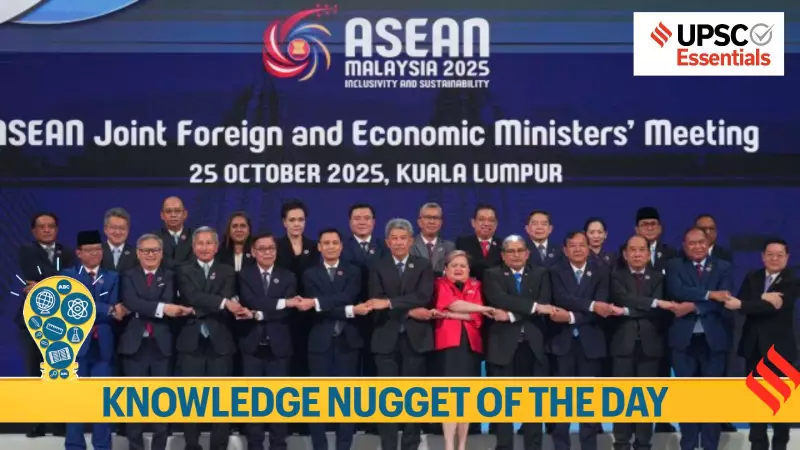
In a significant geopolitical development that could reshape Southeast Asian dynamics, the Association of Southeast Asian Nations (ASEAN) is actively considering the membership bid of East Timor (Timor-Leste). This potential expansion marks one of the most important regional developments in recent years, with far-reaching implications for India's strategic interests in the Indo-Pacific region.
Why East Timor's ASEAN Bid Matters
East Timor, officially known as Timor-Leste, has been pursuing ASEAN membership since shortly after gaining independence in 2002. The small island nation's persistent efforts are now bearing fruit as ASEAN member states move closer to a consensus on this historic expansion.
The timing is particularly significant given the evolving geopolitical landscape in the Indo-Pacific. As major powers jockey for influence, ASEAN's decision to expand could alter the balance of power in this strategically crucial region.
India's Strategic Stake in ASEAN Expansion
For India, which has cultivated strong ties with ASEAN through its "Act East Policy," this development presents both opportunities and challenges. The inclusion of East Timor could:
- Expand India's diplomatic footprint in Southeast Asia through engagement with a new partner
- Create new economic opportunities in sectors where Indian companies have expertise
- Potentially alter voting dynamics within ASEAN on issues important to India
- Strengthen India's position as a key partner in the Indo-Pacific architecture
The Road to Membership: Challenges and Opportunities
While the momentum for East Timor's membership is building, several hurdles remain. The country must demonstrate its capacity to meet ASEAN's requirements and contribute effectively to the organization's objectives. Economic development, institutional capacity, and alignment with ASEAN's principles will be critical factors in the final decision.
From India's perspective, supporting East Timor's integration into regional frameworks aligns with New Delhi's broader foreign policy objectives of promoting stability and prosperity in its extended neighborhood.
UPSC Relevance: Key Takeaways for Aspirants
For civil service examination candidates, understanding this development is crucial for several reasons:
- Geopolitical significance of ASEAN expansion in the context of India's Act East Policy
- Impact on regional organizations and their evolving membership criteria
- India's growing engagement with Southeast Asian nations and smaller states
- Economic and strategic implications of changing regional architecture
This development represents more than just organizational expansion—it signals the continuing evolution of Southeast Asia's regional architecture and India's increasingly important role within it. As ASEAN moves toward this historic decision, the implications for regional stability, economic integration, and strategic partnerships will be closely watched by policymakers in New Delhi and beyond.





